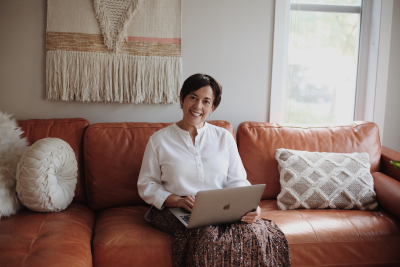Could you briefly share why you chose to focus on the topic of retirement for your research and its significance?
I have a couple of close colleagues who are going through retirement. Although they wish to continue working, they are restricted by the statutory retirement age in Singapore. Also, due to the ongoing national debate on increasing retirement and re-employment ages, my exposure to others' retirement experiences, and the relevancy of this issue, my interest in this issue was piqued. Hence, I chose retirement as my research topic.
Retirement research is vital as the enactment of retirement and re-employment policies affect almost all older adults. The policies will also have a significant impact on baby boomer retirees. As this study is conducted in the middle of the baby boomer retirement wave, studying their retirement experiences, including the impact of their retirement transition type on their post-retirement satisfaction, will enable us to modify policies to suit them better. This will facilitate a positive retirement experience to promote successful ageing. With increased longevity, people may be able to extend their work-life to earn and accumulate financial resources to support themselves. This can also reduce the financial burden on the government.
From the larger research project on the impact of the retirement transition process on the retirement satisfaction and life satisfaction of baby boomers, I have further branched out the research on retirement to examine three specific topics – age biases, late-career planning and bridge employment (any work after retirement) – and will be focusing on age biases in this feature.
What are your findings from this research, and what are their implications?
There were multiple findings from this research. Firstly, we discovered that management is more inclined to give younger workers training opportunities than older ones, despite the latter expressing desires for training and grooming opportunities. Secondly, participants' perceptions of age biases were influenced by their income level. Older individuals with access to more resources were more likely to have wider retirement options such as retirement at their desired age and resources to allow them to adjust better to retirement. Lastly, retirees seeking bridge employment find it difficult to secure a job, and they believe that their age may be the reason why.

These findings will provide a better understanding of older workers, particularly the baby boomers, to tackle any insecurities and feelings of low morale they may have and further aid the formulation of HR policies. For instance, gradual retirement can be offered in place of abrupt involuntary retirement. This may reduce feelings of unpreparedness among the older workers, or that they have lost control of when and how they retire. The management and the senior employees can also collaborate to work out a retirement transition plan.
The findings also have socioeconomic implications towards the ongoing national discussions and debate on increasing the mandatory retirement age. We can offer alternative solutions, such as sustainable forms of work-span extension through late-career planning and bridge employment. Through examining confounding variables related to life satisfaction, we can suggest measures to the government to provide targeted support and customised programmes for retirees in areas like caregiving and grandparenting. If socioemotional resources are found to have significant positive associations with life satisfaction, the government could also introduce programmes and activities that build friendships and strengthen familial and marital relations.
Further, we should also review the HR policies of companies when it comes to retirement. Increasing the mandatory retirement age should not be based solely on changing the numerical age. It should also include a comprehensive review of HR policies to facilitate successful ageing at work. These include changing employers' mindsets about older workers, and consideration of the latter’s characteristics and needs in the workplace and job design. HR and retirement policies cannot move in tandem with older workers' requirements and preferences if there is an inadequate understanding of their profiles. Ultimately, lopsided policy changes may create a poor person-job fit.
What are some areas for further research?
Future research could focus on testing practical solutions to reduce age stereotypes and to change the negative mindsets which people may have towards older workers. As research has largely discussed the need for training and development of older workers, it will be useful to examine the extent to which training and development aid in the reduction of age stereotypes. Research can also assess how inter-generational teams and HR policies and practices can create a more inclusive work culture. As the theme of the double jeopardy of older workers in terms of age and lack of academic qualifications, age and income level, as well as age and gender surfaced in my findings, future research should also examine how other double jeopardies such as age stereotypes and gender stereotypes can affect older male and female workers differently.

Can you tell us about the new research methods and the synthesised model that you had designed?
I have designed and utilised several unique data analytical methods and integrated my findings into a synthesised conceptual model on the role of resources in influencing retirement and life satisfaction. Some of the analytical techniques I developed are bi-directional coding for qualitative data analysis, vignettes to suss our participants' values, and comparing measurements of perceived and actual resources.
Finally, why did you choose to pursue a Ph.D. in Gerontology, and what are your aspirations?
I am drawn to older people and empathise deeply with them in terms of the issues they face. Hence, I decided to pursue an academic career focusing on research topics related to the older population in Singapore. I want to make recommendations, mentor, inspire the younger generation to help the older generation, and develop programmes and curricula to incorporate more community experience for students. As an academic, I aspire to use my applied research findings to propose changes for a better society.
The Centre for Applied Research conducted the interview with Amberyce in September 2020.
For enquires about this article, please contact CFAR via email.